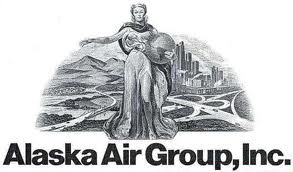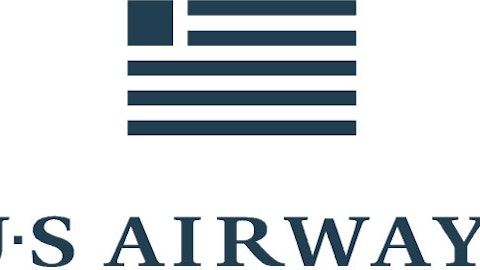Alaska Air Group, Inc. (NYSE:ALK) has outperformed the S&P 500 for the past 12 months. Recently, the stock fell more than 20% due to recurring global economic concerns. However, I believe that the company has a strong business plan, and this dip presents a huge opportunity to expose your portfolio to the airline industry.
A solid business plan
The company trades with a P/E of 11.9, below the industry’s average of 27.0. Also, its balance sheet carries lower-than-average debt, with a debt ratio of 0.6, compared to the average of 2.0. The fact that the company is not submerged in debt as other carriers are is appealing, since most of them spend huge piles of cash to pay just interest. The company showed growth in the last quarter by reporting increasing revenue by 10%. Its free cash flow also rose 20% to $109 million.
With expanding free cash flow, investors should expect that its current share- repurchase program will be expanded in the interim. Currently, the company is buying $250 million worth of stock to bring capital appreciation to its investors, but with increasing revenue and free cash flow, an expansion of the buying program may be around the corner.
The carrier is handling well its relationship with pilots and flight attendants. The company has reached a tentative agreements with flight attendants and pilots regarding the salary raises, quality of life improvements, and more flexible schedules. So, the possibility of a strike is minimal at this point. Also, it is well known that employees put greater effort in performing a task when their work is remunerated accordingly. Customers will have a better flying experience due to superb customer service from the crew, and they are likely to choose Alaska Air Group, Inc. (NYSE:ALK) for future flights.
The company is expanding through the inauguration of new routes and the acquisition of new aircraft. In June, it started operations between Fairbanks, Alaska and Portland, Ore. Further, the carrier is flying daily between San Diego and Kauai, Hawaii.
What’s more is that the load factor of the airline remains unchanged even with the addition of net routes. On the other hand, the company has ordered three more Bombardier Q400 aircraft to expand service in Alaska. The advantages of these turboprop-type aircraft is that they are fuel efficient and effective for short- and medium-duration hauls. Sometimes, they may even replace jet aircraft. With reducing fuel expenses, operating margins should improve for Alaska Air Group, Inc. (NYSE:ALK).
Another regional airline with huge potential for growth
SkyWest, Inc. (NASDAQ:SKYW), as well as Alaska Air Group, operates destinations to the U.S., Canada, Mexico. The company trades with a P/E of 12.9, compared to the industry’s average of 29.0. Its balance sheet also carries lower-than-average debt, with a debt ratio of 1.0. According to its latest quarterly earnings report, the company’s revenue shrunk by 10% to $803 million, but its net income rose to $3 million from a net loss of $1 million.
This company deserves some attention because it acts as an operator for flights of United Express, Delta Air Lines, Inc. (NYSE:DAL)‘s Delta Connection, US Airways Group, Inc. (NYSE:LCC), American Eagle, and Alaska Airlines. The major carriers are experiencing increasing traffic volume, and part of it is handled by SkyWest, Inc. (NASDAQ:SKYW) through connection flights. Therefore, as major airlines boost their passenger traffic, SkyWest’s share will be higher.
SkyWest recently won a 12-year contract to operate 40 Embraer SA (ADR) (NYSE:ERJ) E175 aircraft for United. Also, United Continental has ordered 30 additional aircraft to be distributed to its regional routes. Investors may expect that SkyWest, Inc. (NASDAQ:SKYW) will acquire this contract due to previous relations with United and revenue will be driven to higher levels. Overall, the high passenger traffic from major airlines should be relied upon to boost SkyWest’s revenue. A long position in the stock is highly recommended.
Enough of regional airlines and bring me a major airline
Delta Air Lines, Inc. (NYSE:DAL) operates flights in the United States and internationally. The company trades with a P/E of 17.5, also below the industry’s average. The company posted unchanged revenue of $8.5 billion, but decreasing net income from $124 million to $7 million due to higher operation expenses.
The company looks promising as an investment for growth-oriented portfolios. The carrier just inaugurated a $1.4 billion international terminal in the JFK International Airport. The international presence of the carrier should expand significantly. The company has resumed its routes JFK – Zurich, JFK – Guatemala City.
In addition, the company was tentatively awarded permission by the U.S. Department of Transportation (DOT) to increase its service to Brazil with additional daily nonstop flights between Atlanta and Sao Paulo. This flight could start as early as Oct 1. However, I would suspect the carrier will aim for a route from the JFK Airport to Sao Paulo to take advantage of its new international terminal.
Last, the company reported increasing revenue passenger miles (RPM) in its May monthly traffic report. As long as the passenger traffic remains strong, Delta Air Lines, Inc. (NYSE:DAL) will continue to provide contracts to SkyWest, which will increase its revenue.
A Foolish note
Passenger traffic remains strong, and these airlines continue to expand operations through the inauguration of new routes and facilities, as well as aircraft acquisitions. I would highly recommend buying these stocks as a basket to gain exposure to the recovering airline industry.
The article 3 Companies for Your Growth Portfolio originally appeared on Fool.com and is written by Robinson Roacho.
Robinson Roacho has no position in any stocks mentioned. The Motley Fool has no position in any of the stocks mentioned. Robinson is a member of The Motley Fool Blog Network — entries represent the personal opinion of the blogger and are not formally edited.
Copyright © 1995 – 2013 The Motley Fool, LLC. All rights reserved. The Motley Fool has a disclosure policy.





